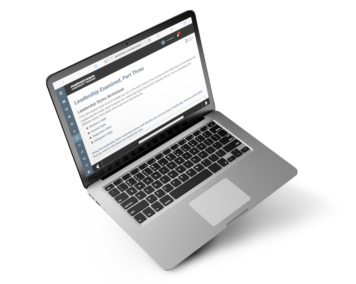27
Jan
5 reasons leadership training should be for all employees
Regardless of the myth that "leaders are born and not created," skills can be taught and improved through leadership training. Developi...
Many of us flinch when we hear terms like depreciation, cash flow, balance sheet, and (worst of all!) budgets. However, these are all important concepts to understand if you’re going to succeed in today’s business world, particularly as a supervisor. Even better, financial terms are not as scary as they seem!


Over the course of this two-day workshop, participants will learn:
The first session will go over basic financial terms. Then, participants will explore their role in company finances as well as important players in an organization’s finances. To wrap up the session, participants will receive some resources for learning about the governing organizations in their area.
Next, participants will learn about the four phases of the accounting cycle. They will also learn about key underlying concepts, including cash vs. accrual methods of accounting.
In this session, participants will take a close look at balance sheets and income statements. They will also review cash flow statements and statements of retained earnings. The session will conclude with a review activity.
This session will explain the chart of accounts and single vs. double entry accounting.
Day Two will start with a review exercise and an introduction to some additional financial terms.
This session will de-mystify two terrifying accounting terms: debits and credits.
This session will give participants some sources for financial data as well as tips on weeding out useless information. We’ll also cover how to calculate common ratios, how to read an annual report, and some useful decision making tools.
In this session, participants will learn about some guidelines for identifying high and low risk companies. Then, they will practice these guidelines in a case study.
Next, participants will learn what a budget is, how their budget should fit into the big picture, and what the budgeting process should look like.
This session will give participants a basic checklist of computer skills required for success. We’ll also talk about how to choose an accounting package.
Dealing with finances isn’t all numbers. What if an employee’s expense report doesn’t look correct? Or what if you have to make cuts to someone’s pay? Participants will examine each situation in small groups, and then provide some tips on what to do.